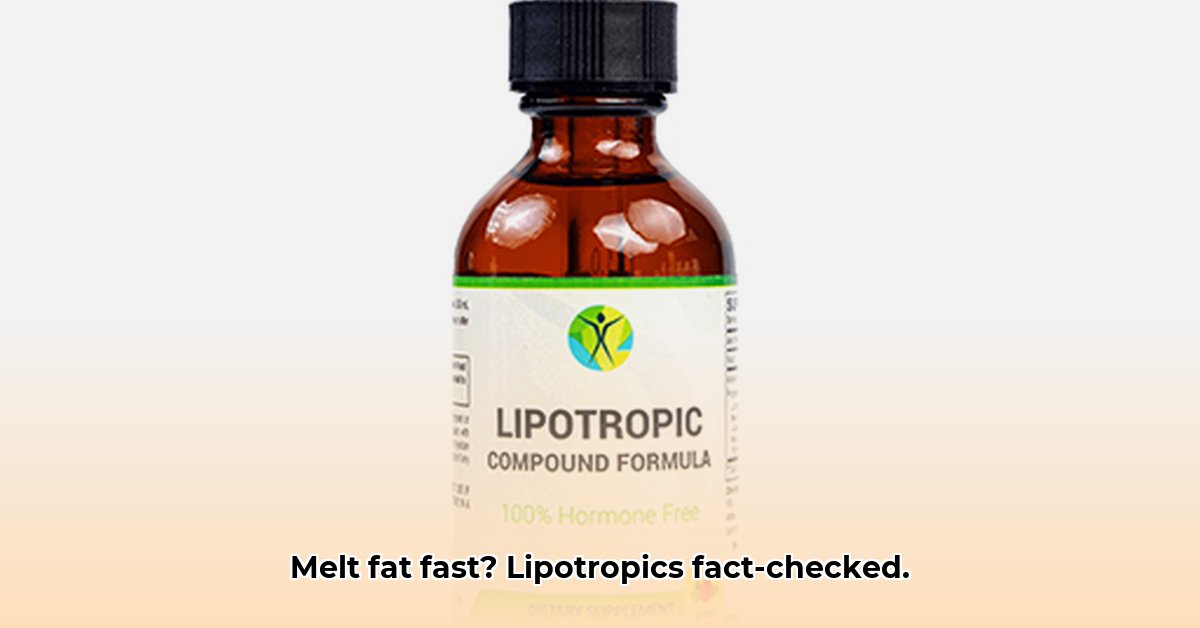
Losing weight is a common goal, and many seek shortcuts. Lipotropic injections are one such purported shortcut, promising rapid fat loss. However, the scientific evidence supporting these claims is weak, and potential risks merit careful consideration. This review examines the facts surrounding lipotropic injections for weight loss.
What are Lipotropic Injections?
Lipotropic injections typically contain a blend of B vitamins (particularly B12), choline, inositol, and methionine. These nutrients play various roles in metabolism, including fat processing and liver function. The theory is that increased levels of these nutrients enhance the body's fat-burning efficiency. This remains largely unproven, however, and should be approached with skepticism.
The Evidence (or Lack Thereof)
While some studies suggest individual components like B12 or choline may influence metabolism, there's limited robust evidence demonstrating that the combined effect of these nutrients in injections leads to significant weight loss. Many studies supporting lipotropic injections suffer from crucial limitations: small sample sizes, inadequate study design, and a heavy reliance on anecdotal evidence. Anecdotal evidence, while interesting, doesn't provide the level of proof needed to support widespread use. The absence of large-scale, well-designed clinical trials is a significant concern. Do these injections truly work, or are the results attributable to lifestyle modifications often undertaken concurrently?
Potential Risks
Lipotropic injections, while generally considered relatively safe when administered by a medical professional, carry potential risks. Injection-site reactions (pain, redness, swelling) are relatively common. Allergic reactions, though less frequent, can be severe. A substantial risk stems from the lack of regulation for many lipotropic injection products. This means that the purity, dosage, and overall safety of the ingredients are not consistently guaranteed. This lack of regulation significantly increases the potential for harm.
Here's a summary of potential risks:
| Risk Category | Likelihood | Severity |
|---|---|---|
| Injection-site reaction | Moderately Likely | Usually Mild, Temporary |
| Allergic Reaction | Unlikely | Potentially Severe |
| Unregulated supplement | More Likely | Variable, Potentially Serious |
Healthier Alternatives
For safe and effective weight loss, consider evidence-based approaches:
- Balanced Diet: Focus on whole, unprocessed foods.
- Regular Exercise: Find activities you enjoy and can maintain long-term.
- Adequate Sleep: Aim for 7-9 hours of quality sleep per night.
- Stress Management: Incorporate stress-reducing techniques into your routine.
- Professional Guidance: Consult a doctor or registered dietitian for personalized advice.
These methods have a far stronger evidence base than lipotropic injections.
Conclusion: Prioritize Evidence-Based Approaches
The scientific evidence supporting lipotropic injections for significant weight loss is currently insufficient. Combined with the potential risks associated with unregulated supplements and individual reactions, a cautious approach is warranted. Before considering lipotropic injections, consult your doctor to discuss safer, more effective weight-loss strategies tailored to your individual needs and health status. Remember, prioritizing evidence-based methods is paramount for achieving sustainable weight management. Your health should always be the primary focus.